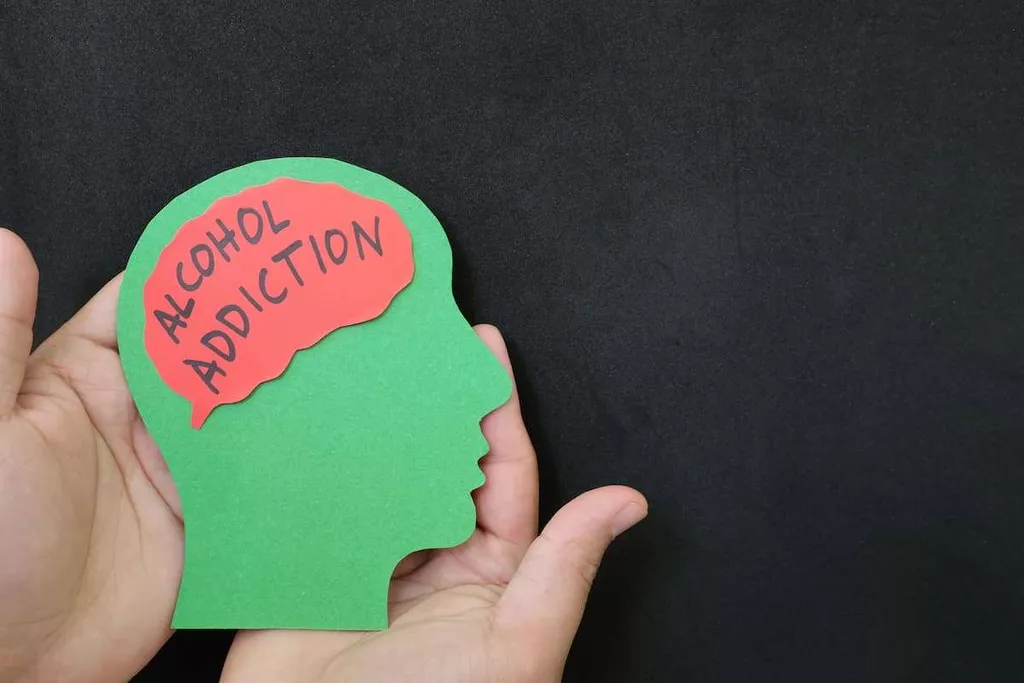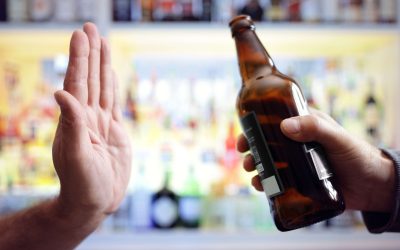Contents
Alcohol can cause tissue damage, or increase the ability of carcinogens to do damage, in the mouth, pharynx, esophagus, colon and liver. In your body, alcohol is metabolized to a compound called acetaldehyde, which is a recognized human carcinogen . Cancer-causing damage could come from acetaldehyde disrupting DNA and from free radicals produced during alcohol metabolism.
I didnt drink more than a couple of units a week and that was rarely. I exercised daily, could run marathons but still was diagnosed with breast cancer at 45 years old. So sorry do not believe enough research has been done yet. At Cancer Research UK, we’re committed to finding out more about the mechanisms by which alcohol causes cancer.
And we also have this blog post discussing diesel emissions and public health. The relationship seen in population studies between drinking and colon cancer may also be spurious or exaggerated for the same reason – drinkers screen more, screen raises incidence. One of the better articles, and well written, but still somewhat biased and alarmist . It’s naughty not to mention that non-alcoholic drinkers live longer. This blog implies that moderate drinkers are seriously risking their lives, which is not true.

Too much alcohol can add extra calories to the diet, which can contribute to weight gain in some people. Being overweight or obese is known to increase the risks of many types of cancer. The doctors and nurses administering the treatment will be able to give specific advice about whether it is safe to consume alcohol while undergoing specific cancer treatments. These amounts are used by public health experts in developing health guidelines about alcohol consumption and to provide a way for people to compare the amounts of alcohol they consume. However, they may not reflect the typical serving sizes people may encounter in daily life.
Defining Heavy Drinking in Association with Colon Cancer Risk
Teetotallers have worse outcomes in terms of all cause mortality than those who drink 10 – 20g a day. Now, eating a healthy diet may help modulate that risk. Yeah, alcohol increases the risk of breast cancer, but “a fiber-rich diet the opposite effect.” So, eating more whole plant foods may be able to “ease the adverse effects” of alcohol. “Alcohol has been shown to increase sex hormone levels,” like estrogen, which may increase breast cancer risk. But, you see the opposite happen eating fiber-rich foods. “Fiber bind estrogen in the colon” and help flush it out of the body.
Steve and Irving, not the most chipper duo, even on a good day, express their feelings about this hideous article. Cytosine, guanine, and adenine have amino groups that can react with electrophilic chemicals and drugs and form stable, covalent bonds. First, let’s tip our hats to the Environmental Working Group for successfully bullying Johnson & Johnson into reformulating its time-tested Baby Shampoo, a childhood staple since 1953.
They do this through denying the evidence, distorting the evidence, and trying to distract the public’s attention. “The appears to be engaged in the extensive misrepresentation of evidence” for which Big Tobacco is best known. Learn how bupropion interacts with alcohol, whether it is safe, and the potential side effects. Consuming alcohol with lithium, a medication used to treat bipolar disorder, can have dangerous side effects. Recently, researchers from MRC Laboratory of Molecular Biology in Cambridge, United Kingdom, set out to gain a clearer picture of the alcohol-cancer relationship using whole animals. Though the links are established, exactly how alcohol works to induce malignancy is not as well-understood.
Diet
In fact, 7 out of 10 Americans are unaware of the link. Give the alcohol lobby and advertisers the opportunity to manipulate scientific evidence to generate profits” over public health. Not appear to be any level of alcohol consumption that is completely safe from a cancer standpoint. Petticrew M, Maani Hessari N, Knai C, Weiderpass E. How alcohol industry organisations mislead the public about alcohol and cancer. Millions of people — many East Asians, for instance — have low levels of ALDH or faulty copies of the enzymes. This means that toxic acetaldehyde builds up in the body.
But, even so, there does not appear to be any level of alcohol consumption that is completely safe from a cancer standpoint. You may have heard that drinking alcohol can be good for the heart. But the NHS alcohol guidelines say that the evidence is not clear and that there is no completely safe level of drinking.

But for some types of cancer, most notably breast cancer, consuming even small amounts of alcohol can increase risk. The CDC says drinking alcohol raises the risk of getting mouth and throat, larynx, esophagus, colon and rectum, liver and breast cancer. A pooled analysis of data from 53 studies found for each how much does a drug and alcoholic drink consumed per day, the relative risk of breast cancer increased by about 7 percent . Scientists have studied whether drinking alcohol increases a person’s risk of developing bladder cancer. Most of the research has shown that drinking alcohol does not have an effect on bladder cancer.
Medical
Overall, heavy drinkers of both sexes face 44% higher risks than non-drinkers. Throat cancer affects the throat, voice box, vocal cords, or tonsils. Alcohol use may increase the risk of developing throat cancer. Blood stem cells, found in blood and bone marrow, are immature blood cells that can develop into any type of blood cell, including white blood cells, platelets, and red blood cells.
- Read real-life accounts of how AICR is changing lives through cancer prevention and survivorship.
- One theory that might explain this is the bacteria we mentioned earlier.
- At Cancer Research UK our experts regularly review the evidence on risk factors for cancer, including alcohol.
- She lives with her husband and springer spaniel and enjoys camping and tapping into her creativity in her downtime.
- You must attribute the article to NutritionFacts.org with a link back to our website in your republication.
A 1.5-ounce shot of liquor, 5 ounces of wine, or 12 ounces of beer counts as one drink. Moderate drinking is up to one drink for women and up to two a day for men. Attributable fraction of alcohol consumption on cancer using population-based nationwide cancer incidence and mortality data in the Republic of Korea. There’s plenty of tricks that people claim ‘cure’ hangovers and reverse damage from alcohol.
While they worry about a vanishingly small amount of formaldehyde, they drink alcohol, which is much worse. Talk with your health care provider about the potential health benefits and risks of drinking low to moderate amounts of alcohol. In short, the evidence that alcohol causes cancer deaths is not strong, and suggests that if alcohol does increase the risk of a dying from cancer it is a very tiny risk indeed. The relationship alcohol addiction treatment center between humans and alcohol goes back millennia and it’s an integral part of many societies’ social lives. Of course, adults have the right to decide how much they want to drink, but alcohol’s health impacts are undeniable. By working with the Government, policy-makers and healthcare professionals, we’re aiming to raise awareness of the risks of alcohol and help people make choices that can reduce their cancer risk.
But even if they work for your hangover, they don’t cancel out the damage from drinking alcohol. Alcohol can increase the levels of some hormones such as oestrogen and insulin. Hormones are chemical messengers and higher levels can make cells divide more often, which raises the chance that cancer cells will develop. Cancer rates are increasing because people are living longer – we’ve written this blog post to explain the increase. There’s information about the link between air pollution and cancer in this blog post.
Acetaldehyde has also been shown to bind to DNA, forming clumps called adducts. These play havoc with how DNA works, folds, replicates and repairs itself. Essentially, adducts are another type of mutation, and they too can cause cells to become cancerous.
Heavy drinkers are five times as likely as nondrinkers to get cancer here. And the danger gets even bigger if you light up as well, since alcohol can help pave the way for harmful tobacco chemicals to get inside cells. This is because tobacco and alcohol work together to cause much more damage to cells.
How Drinking Alcohol Raises Cancer Risk
We also highlight other relevant material, debunk myths and media scares, and provide links to other helpful resources. Being a Heathcate Assistant for a GP surgery, I find myself advising patients about the association between Alcohol and some Cancers. I think that by using the information here it will help my patients to make a more informed decision about their Alcohol consumption. And hopefully they will pass the information on to others.
Verywell Health uses only high-quality sources, including peer-reviewed studies, to support the facts within our articles. Read our editorial process to learn more about how we fact-check and keep our content accurate, reliable, and trustworthy. Many people avoid quitting because the thought of quitting cold turkey is daunting.
Doesn’t moderate drinking protect against cardiovascular disease? These are exactly the kinds of questions I set out to address in this four-part video series, which also includes. Although acetaldehyde disappears quickly once it’s early, mid, and late stages of alcoholism formed (or you’d be dead) when you keep drinking and supplying more and more ethanol, some acetaldehyde will stick around for a while. (Acetaldehyde is one of the chemicals that causes hangovers.) This is where cancer comes in.
During the follow-up period, around 7.4% of the men – approximately 60,000, compared with 90,000 women – developed cancer. According to the NIH National Human Genome Research Institute, an enzyme is a biological catalyst that speeds up the rate of a specific chemical reaction in the cell. To do so, the team used DNA samples from more than 150,000 adults – the majority of whom were women – in the China Kadoorie Biobank study. This material may not be published, broadcast, rewritten, or redistributed. Quotes displayed in real-time or delayed by at least 15 minutes. Powered and implemented by FactSet Digital Solutions.
Decades of Cancer Research
Long-term excessive drinking is a major risk factor for cirrhosis, a condition marked by scarring and inflammation of the liver. Help us drive the future of cancer prevention, and give families and communities the tools they need to take charge of their health. If you choose to drink, keep amounts to no more than 1 drink/day for women, or 2 drinks/day for men.
